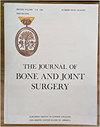Hip and knee arthroplasties and their significance in personal injury practice
1区 医学
Q1 Medicine
引用次数: 0
Abstract
Complications of hip and knee arthroplasty are frequently a source of litigation. The circumstances surrounding the complication - and whether it results from substandard care - need to be opined upon by a surgeon with considerable experience in that field. The subject was reported by McWilliams et al1 from a review of the records of the NHS Litigation Authority (NHSLA) in the UK. However, hip and knee arthroplasty is also a source of interest in some personal injury claims, particularly after tibial plateau and acetabular fractures. Legal advisers are usually interested in four things: *What is the likelihood of arthroplasty in the future? *When is it likely to be required? *What is the likely outcome, i.e. is the outcome similar in nature to arthroplasty for non-traumatic osteoarthritis? What is the likelihood of a revision being required in the patient/claimant’s lifetime? *If the patient/claimant is still in employment, how much time will they lose from work and how likely are they to get back to work? All orthopaedic surgeons are aware that the decision to recommend joint arthroplasty for a painful symptomatic hip/knee joint is very much a quality of life decision. This applies in both the post-traumatic and non-traumatic situation. A proper risk/benefit analysis needs to be conducted with the patient. The likelihood of post-traumatic arthritis developing after hip or knee injury depends upon the precise nature of the original injury and the adequacy of the initial surgery, if the fracture was treated operatively. Following analysis of the case, the expert should be in a position to make an educated estimate as to whether and when arthroplasty will be required in the future on the basis …髋关节和膝关节置换术及其在人身伤害实践中的意义
髋关节和膝关节置换术的并发症经常是诉讼的一个来源。并发症的具体情况——以及是否由于不合格的护理——需要由在该领域有丰富经验的外科医生来判断。该主题是由McWilliams等人从英国NHS诉讼管理局(NHSLA)的记录审查中报告的。然而,髋关节和膝关节置换术也是一些人身伤害索赔的兴趣来源,特别是在胫骨平台和髋臼骨折后。法律顾问通常对四件事感兴趣:*未来关节成形术的可能性有多大?*什么时候可能需要?*可能的结果是什么,即结果是否与非创伤性骨关节炎的关节置换术相似?在患者/索赔人的一生中需要修改的可能性有多大?*若病人/申索人仍在受雇,他们会因工作而损失多少时间?他们重返工作岗位的可能性有多大?所有的骨科医生都意识到,对于有疼痛症状的髋关节/膝关节,推荐关节置换术的决定在很大程度上是一个生活质量的决定。这适用于创伤后和非创伤情况。需要对患者进行适当的风险/收益分析。髋关节或膝关节损伤后发生创伤后关节炎的可能性取决于原始损伤的确切性质和初始手术的适当性,如果骨折是手术治疗的。在对病例进行分析之后,专家应该能够根据……对将来是否以及何时需要进行关节置换术做出有根据的估计。
本文章由计算机程序翻译,如有差异,请以英文原文为准。
求助全文
约1分钟内获得全文
求助全文

 求助内容:
求助内容: 应助结果提醒方式:
应助结果提醒方式:


